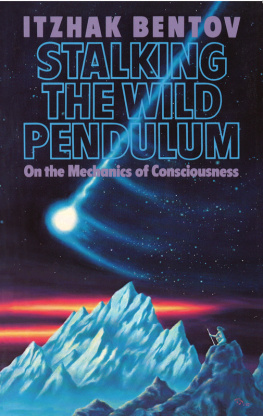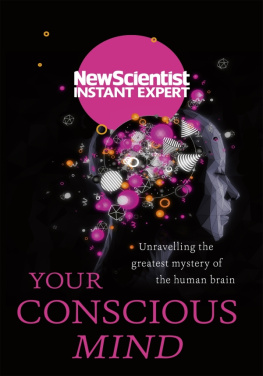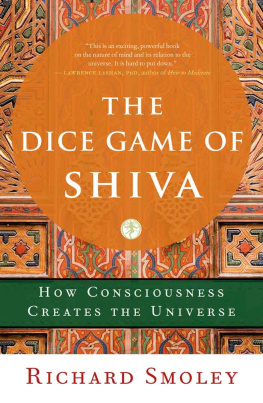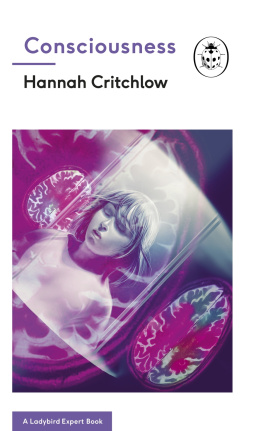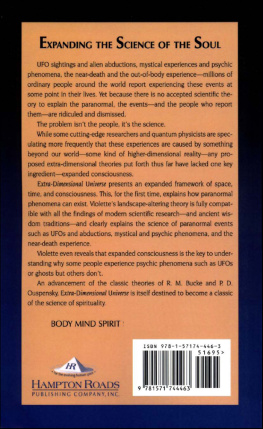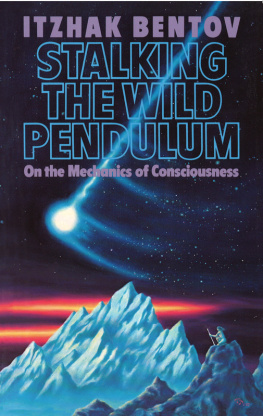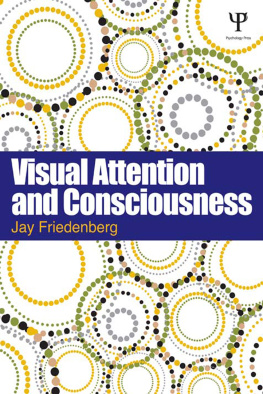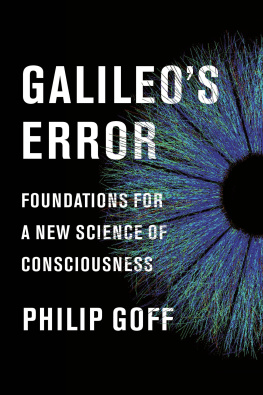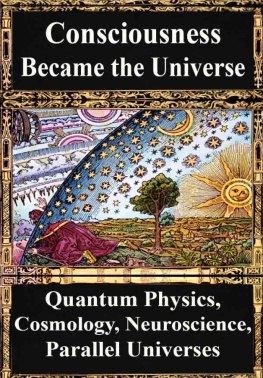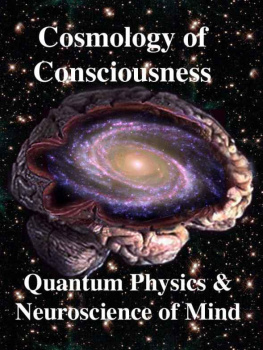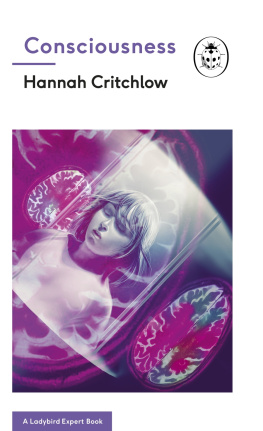Stalking
The Wild
Pendulum
On the Mechanics of Consciousness
ITZHAK BENTOV
Destiny Books
Rochester, Vermont
Dedicated to those individuals
who are trying to pull together diverse aspects
of nature into one new, meaningful whole...
ACKNOWLEDGEMENTS
During the time that this book was written, I conferred with many people, mostly scientists who are specialists in their respective fields, to check out the details of my ideas. This fact does not imply in any way that all of them agree with the material presented here.
First, I would like to express my gratitude to Professor Mael Melvin, physicist at Temple University, for going over the manuscript and straightening out my physics, which was limping in places; and to Professor William W. Tiller, Materials Sciences Department, Stanford University, for our long discussions about the nature of the universe and for his writing a preface to this book. To Tom Etter, physicist, University of Minnesota, for our discussions of the pre-quantum states.
Many thanks to all my friends, who kept urging me to write this book, starting with Lee Sannella, M.D., who arranged for the first public presentation of these ideas; to Richard Ingrasci, M.D., Eddie Hauben, Bill and Tom Hickey, and the rest of my friends at Interface, who kept things moving. To my friends at Whitewood-Stamps, Jessica Lipnack, Tom Nickel, Jeff Stamps, and Frank White, all knowers of the relative and the absolute, who gave an initial criticism of the manuscript; to Paul Nardella, the electronics wizard, who designed and built the electronic instruments used in our measurements and experiments; to David Doner, M.D., who helped with the medical portion of the appendix; to Robert L. Schwartz, chairman, Tarrytown Conference Center, who arranged for the presentation of these ideas for criticism to a panel of scientists; and finally, to my wife Mirtala, who patiently edited, criticized, and typed the manuscript.
I TZHAK B ENTOV
Illustrated by the author, except for some of the better-looking sketches, which were done by Rick Humesky of Ann Arbor, Michigan.
PUBLISHERS NOTE
An outstanding exponent of the new science of consciousness, Itzhak Bentov touched all whom he encountered with his insightfulness and genius of expression. His untimely death in 1979 was an undeniable loss, but his visionclearly presented and accessible in his writingscontinues to illumine the forward path to higher consciousness.
CONTENTS
PREFACE
It is with a great sense of pleasure that I write this preface to the first book by my remarkable friend, Itzhak Bentov, who is known to all as Ben.
Ben is an intuitive inventor without much formal education who likes to tinker about in his versatile basement laboratory seeking simple and practical solutions to complex technological problems. Presently, he spends most of his time developing a variety of medical instruments. This is how he makes his living, and he is sufficiently good at it to be in great demand by modern, specialized industries that desperately need his special brand of creativity.
On one of my visits to his home, I noticed on one of the book shelves of his rather extensive technical and scientific library a little book with a pink cover, titled Winnie The Pooh, tucked away between heavy books with ponderous technical titles. This may give some insight into the whimsical style used by Ben throughout this book.
His intuition led him into the regular practice of meditation about ten years ago, which, in turn, led to enhanced personal integration and internal coherence. This was followed by the design of experiential journeys into the microcosm and macrocosm of the universe; collectively, out of it all has flowed this beautiful little book. It is a really fine book, easy to read and worthy of the attention of all, old and young, who want to expand their awareness and grow in consciousness. It is also a most useful model for the development of our future science.
The present scientific establishment has grown somewhat fossilized by its current world picture and is locked into a view of reality that has outlived its usefulness. It has begun to limit mankinds growth and has so increased its sense of specialization, separateness, materiality, and mechanical computerlike functioning that it is in real danger of self-ex termination. Its sense of wholeness and purpose has been severely fragmented as our egos have reveled in the individual power created by ownership of physical scientific knowledge. We desperately need to find a path back to wholeness!
This recent period of quantitative physical science has been extremely important to humankinds development since it has forged a clearly discernible, albeit materialistic, path through the uncharted terrain of Natures expression. It has taught us how to perform meaningful, reproducible experiments and to build and test relevant theories about Nature. However, we have presently become so focused on this one path that we have lost the flexibility of sensing all the other possible paths of knowledge available to us in the wonderland of Nature.
We have come to think that the renowned scientific method is to be coldly objective about an experiment because that has been very effective for much of the past experimentation. However, the scientific method is really to provide the necessary and sufficient protocol for anyone, anywhere, to successfully duplicate the experimental result. If this requires a positive, negative, or neutral mental or emotional bias, then so be it. As we move off the purely physical path in our future experimentation, we will need to include, clearly define, and quantitatively measure these states of bias because we shall find that the human mind and human intention alter the very substratum in which our physical laws operate.
Our physical science does not necessarily deal with reality, whatever that is. Rather, it has merely generated a set of consistency relationships to explain our common ground of experience, which is determined, of course, by the capacity and capabilities of our physical sensory-perception mechanisms. We have developed these mathematical laws based ultimately on a set of definitions of mass, charge, space, and time. We dont really know what these quantities are, but we have defined them to have certain unchanging properties and have thus constructed our edifice of knowledge on these pillars. The edifice will be stable so long as the pillars are unchanging. However, we appear to be entering a period of human evolvement in which certain qualities of the human being appear to be able to change, or deform, these basic quantities. Thus, our set of laws or consistency relationships will have to change to embrace this new experience. It isnt as if the old laws are wrong and need to be thrown outno more than Newton was wrong when Einstein came along and showed that the laws of gravitation had to be altered when one adopted a frame of reference for observation that moved at velocities approaching the velocity of light. At this time, we are beginning to adopt new states of consciousness as reference frames for observing Nature, and thus the old laws will need to be altered to conform with the new experience, when the experiential sensing is sufficiently widespread as to constitute a common ground of experience. Along this path, humankinds view of itself, of the universe, and of the synergistic interrelationship of both is in for great changes:
There have been some small beginnings made toward a new self image for humankind, one that emphasizes the human wholeness and connectivity with everything around it. Everything seems to interact with everything else at many subtle levels of the universe beyond the purely physical level, and the deeper we penetrate into these other levels, the more do we realize that we are One.

